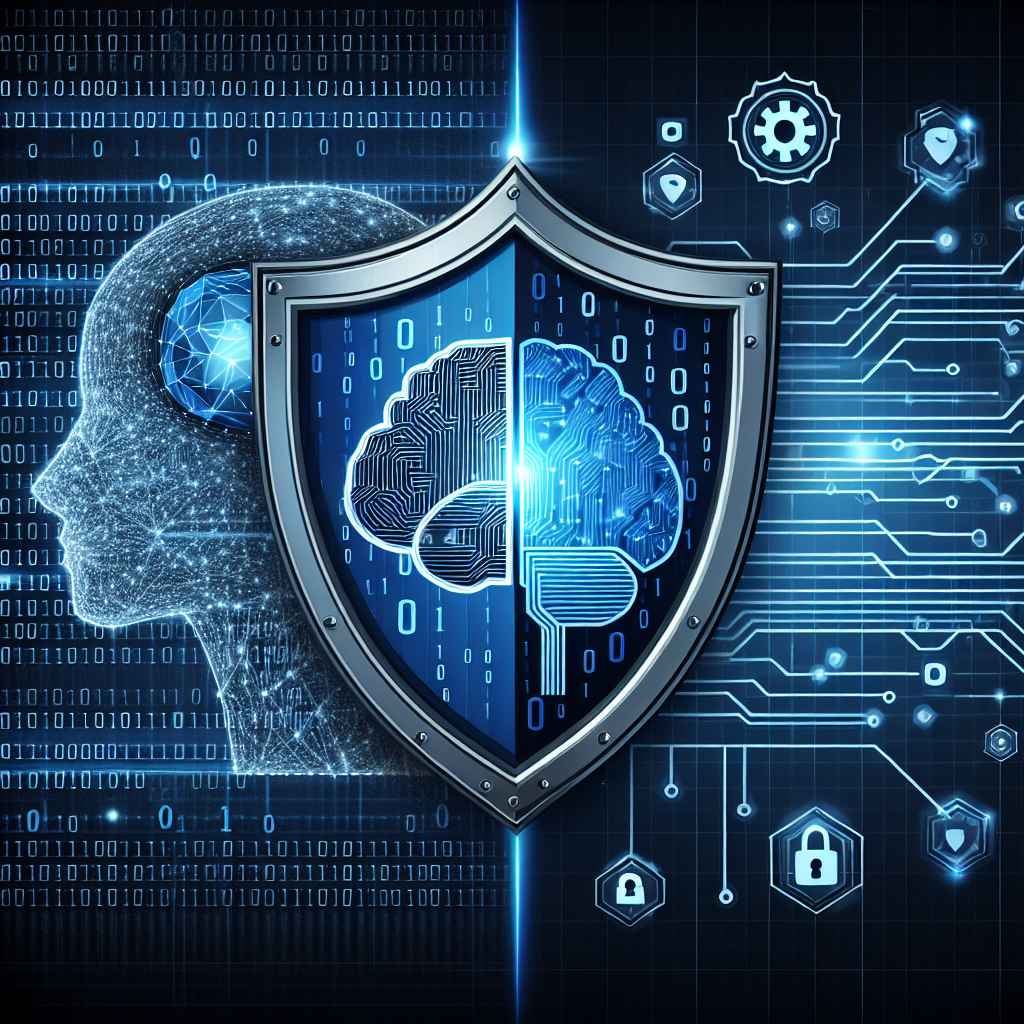In today’s digital age, cybersecurity is more important than ever. With the increasing number of cyber threats targeting businesses and individuals, it’s essential to have a robust defense system in place to protect sensitive data and information. One of the most effective ways to strengthen cybersecurity is by incorporating artificial intelligence (AI) into your defense strategy.
AI has revolutionized the way we approach cybersecurity by providing advanced capabilities to detect, analyze, and respond to cyber threats in real-time. With the ability to process large amounts of data and identify patterns and anomalies, AI can help organizations stay ahead of potential cyber attacks and minimize the risk of a breach.
In this article, we will explore how AI can be used to build a stronger defense against cyber threats, and how organizations can leverage this technology to enhance their security posture.
Detecting and Preventing Cyber Threats
One of the key benefits of using AI in cybersecurity is its ability to detect and prevent cyber threats before they can cause harm. AI-powered tools can analyze incoming data streams and identify suspicious activities or patterns that may indicate a potential threat.
For example, AI can monitor network traffic in real-time and flag any unusual behavior, such as a sudden increase in data transfer or unauthorized access attempts. By detecting these anomalies early on, organizations can take immediate action to prevent a cyber attack from occurring.
AI can also be used to analyze historical data and predict future threats based on patterns and trends. By leveraging machine learning algorithms, AI can identify potential vulnerabilities in a system and recommend proactive measures to mitigate the risk of a breach.
Responding to Cyber Attacks
In the event of a cyber attack, AI can play a crucial role in helping organizations respond quickly and effectively. AI-powered tools can automate the incident response process, allowing security teams to prioritize and address threats in real-time.
For example, AI can automatically quarantine infected devices, block malicious IP addresses, and isolate compromised systems to prevent the spread of malware. By streamlining the response process, organizations can minimize the impact of a cyber attack and reduce downtime.
AI can also be used to conduct forensic analysis after a breach occurs, helping organizations understand how the attack occurred and identify the root cause. By analyzing data logs and system activity, AI can provide valuable insights into the attacker’s tactics and techniques, allowing organizations to strengthen their defenses and prevent future attacks.
Enhancing Security Operations
AI can also enhance security operations by automating routine tasks and providing valuable insights to security teams. By leveraging AI-powered tools, organizations can streamline threat detection, incident response, and vulnerability management processes, freeing up valuable time and resources for security professionals to focus on more strategic initiatives.
For example, AI can automate the process of patch management by identifying vulnerabilities in a system and recommending the appropriate patches to apply. By automating this task, organizations can ensure that their systems are up-to-date and protected against the latest threats.
AI can also help security teams prioritize alerts and incidents based on their severity and impact. By analyzing incoming data and correlating events across different sources, AI can identify high-priority threats that require immediate attention, allowing security teams to respond quickly and effectively.
FAQs
Q: How does AI differ from traditional cybersecurity tools?
A: Traditional cybersecurity tools rely on predefined rules and signatures to detect and prevent cyber threats, while AI uses machine learning algorithms to analyze data and identify patterns and anomalies. AI can adapt to new threats and trends in real-time, making it more effective at detecting and responding to cyber attacks.
Q: Is AI capable of replacing human security professionals?
A: While AI can automate routine tasks and enhance security operations, it is not a substitute for human expertise. Security professionals play a crucial role in interpreting AI-generated insights, making informed decisions, and implementing strategic security measures to protect against cyber threats.
Q: How can organizations implement AI in their cybersecurity strategy?
A: Organizations can start by evaluating their current security posture and identifying areas where AI can add value. They can then invest in AI-powered tools and platforms that align with their security objectives and integrate seamlessly with existing systems. Training and upskilling security teams on AI technologies are also essential to maximize the benefits of AI in cybersecurity.
In conclusion, AI has the potential to revolutionize cybersecurity by providing advanced capabilities to detect, analyze, and respond to cyber threats in real-time. By incorporating AI into their defense strategy, organizations can build a stronger defense against cyber threats and minimize the risk of a breach. With the right tools and expertise, organizations can leverage AI to enhance their security posture and stay ahead of evolving cyber threats.

